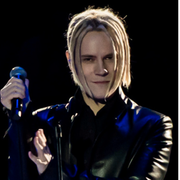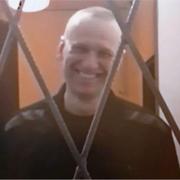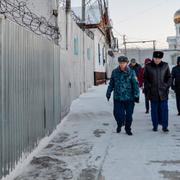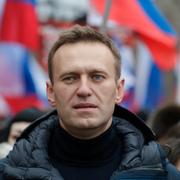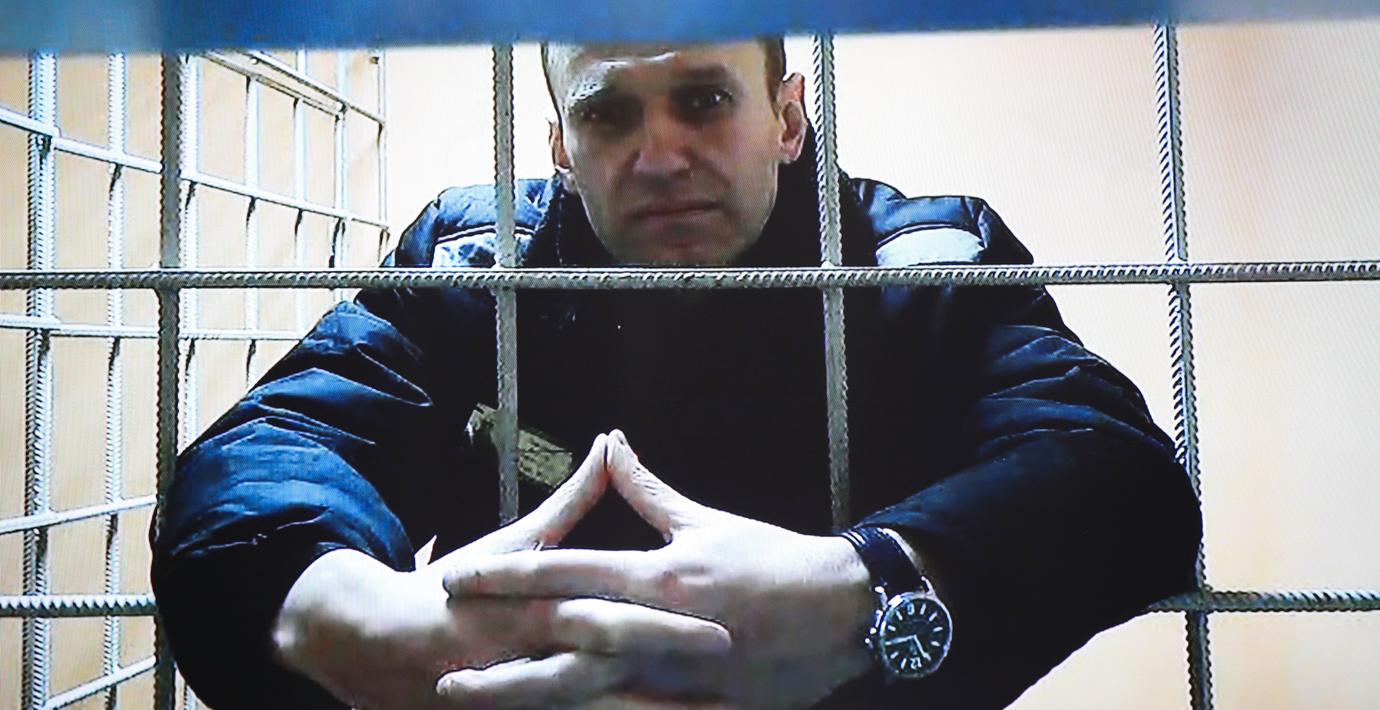
Navalnyj: Jag tillbringade nyår i en straffcell
Den fängslade ryske kremlkritikern Aleksej Navalnyj skriver på sociala medier att han tillbringade nyårsafton i vad han kallar en straffcell, rapporterar AFP.
”Jag lyckades få min tionde sejour i en straffcell under förra året trots allt”, skriver han.
Enligt egen utsago ska han ha skickats till cellen för att han tvättade sitt ansikte tidigare på morgonen än vad som tilläts. Något ironiskt skriver han att de ”fina planerna” han hade för nyår förstördes i och med straffet.
Navalnyj dömdes 2021 till nio års fängelse för att ha förskingrat donationer. En anklagelse som han själv och många andra anser är politiskt motiverad.
bakgrund
Aleksej Navalnyj
Wikipedia (en)
Alexei Anatolievich Navalny (Russian: Алексей Анатольевич Навальный, IPA: [ɐlʲɪkˈsʲej ɐnɐˈtolʲjɪvʲɪtɕ nɐˈvalʲnɨj]; born 4 June 1976) is a Russian opposition leader, lawyer, and anti-corruption activist. He has organised anti-government demonstrations and run for office to advocate reforms against corruption in Russia, and against president Vladimir Putin and his government, who avoids referring directly to Navalny by name. Navalny was a Russian Opposition Coordination Council member. He is the leader of the Russia of the Future party and founder of the Anti-Corruption Foundation (FBK). He is recognised by Amnesty International as a prisoner of conscience, and was awarded the Sakharov Prize for his work on human rights.As of 2021 Navalny had more than six million YouTube subscribers; through his social media channels, he and his team have published material about corruption in Russia, organised political demonstrations and promoted his campaigns. In a 2011 radio interview, he described Russia's ruling party, United Russia, as a "party of crooks and thieves," which became a popular epithet. Navalny and the FBK have published investigations detailing alleged corruption by high-ranking Russian officials and their associates.
In July 2013, Navalny had received a suspended sentence for embezzlement, nevertheless, he was allowed to run in the 2013 Moscow mayoral election and came in second, with 27% of the vote, outperforming expectations but losing to incumbent mayor Sergey Sobyanin, a Putin appointee. In December 2014, Navalny received another suspended sentence for embezzlement. Both of his criminal cases were widely considered to be politically motivated and intended to bar him from running in future elections. The European Court of Human Rights (ECHR) later ruled that the cases violated Navalny's right to a fair trial, but the sentences were never overturned. In December 2016, Navalny launched his presidential campaign for the 2018 presidential election but was barred by Russia's Central Election Commission (CEC) after registering due to his prior criminal conviction; the Russian Supreme Court subsequently rejected his appeal. In 2017, the documentary He Is Not Dimon to You was released, accusing Dmitry Medvedev, the then prime minister and previous president, of corruption, leading to mass protests. In 2018, Navalny initiated Smart Voting, a tactical voting strategy intended to consolidate the votes of those who oppose United Russia, to the party of seats in elections.In August 2020, Navalny was hospitalised in serious condition after being poisoned with a Novichok nerve agent. He was medically evacuated to Berlin and discharged a month later. Navalny accused Putin of being responsible for his poisoning, and an investigation implicated agents from the Federal Security Service. In January 2021, Navalny returned to Russia and was immediately detained on accusations of violating parole conditions while he was hospitalised in Germany which were imposed as a result of his 2014 conviction. Following his arrest and the release of the documentary Putin's Palace, which accused Putin of corruption, mass protests were held across Russia. In February 2021, his suspended sentence was replaced with a prison sentence of over two and half years' detention. In March 2022, Navalny was sentenced to an additional nine years in prison after being found guilty of embezzlement and contempt of court in a new trial described as a sham by Amnesty International; his appeal was rejected and in June, he was transferred to a high-security prison.
Omni är politiskt obundna och oberoende. Vi strävar efter att ge fler perspektiv på nyheterna. Har du frågor eller synpunkter kring vår rapportering? Kontakta redaktionen
